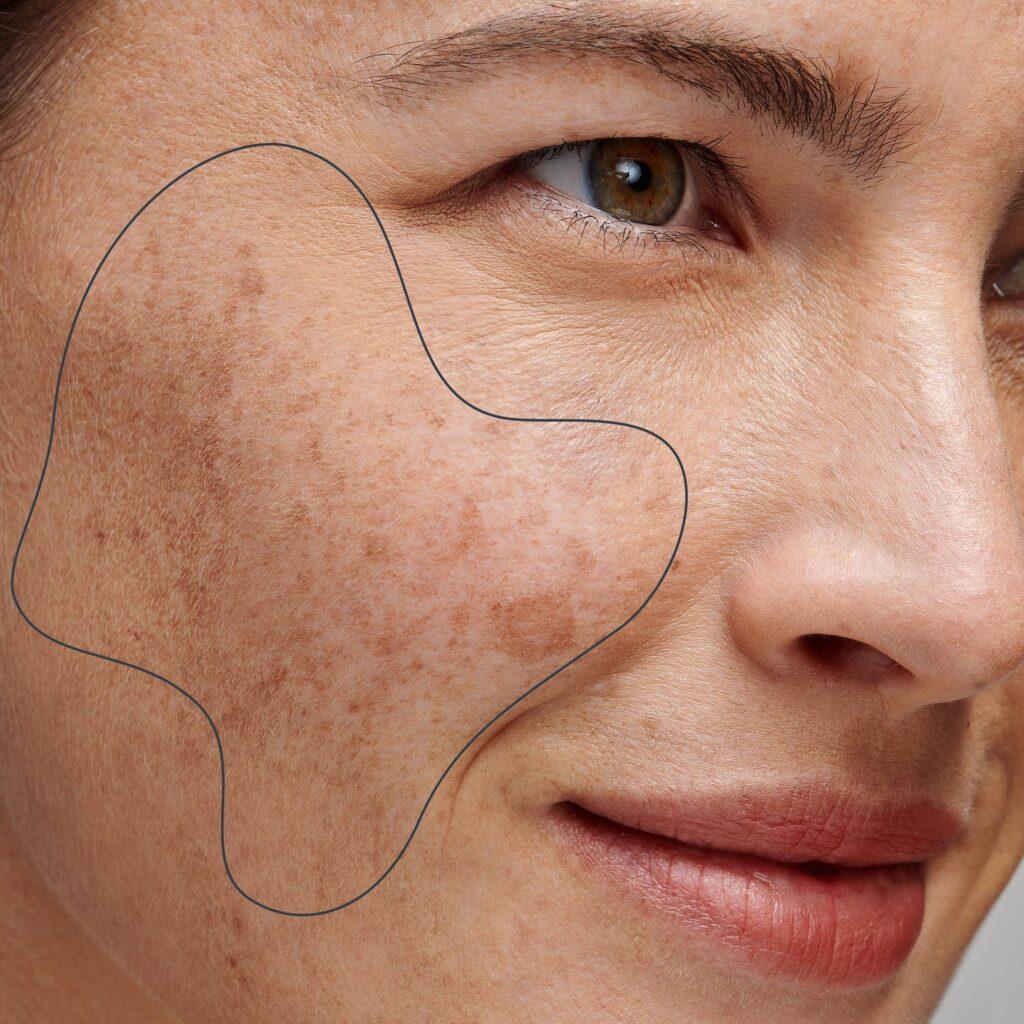
Apple Cider Vinegar for Pigmentation A Natural Remedy for Glowing Skin
Skin pigmentation issues, characterized by dark spots, uneven skin tone, and blemishes, can be a common concern for many individuals. Whether it’s melasma, hyperpigmentation, or post-inflammatory hyperpigmentation (PIH), these conditions can affect self-esteem and overall skin health.
While there are numerous skincare products and treatments available, natural remedies like apple cider vinegar for pigmentation have gained popularity for its potential effectiveness. In this in-depth article, we will explore what ACV is, its components, how it works on pigmentation, and provide step-by-step instructions on how to safely and effectively use it.
Understanding Pigmentation
Types of Pigmentation
- Melasma: Often associated with hormonal changes, such as pregnancy or birth control use, melasma results in symmetrical, brownish patches on the face.
- Hyperpigmentation: Caused by factors like sun exposure, injuries, or inflammation, hyperpigmentation leads to dark spots or patches on the skin.
- Post-Inflammatory Hyperpigmentation (PIH): Occurs after skin trauma or inflammation, typically following acne breakouts or injuries, leading to darkened areas.
Causes of Pigmentation
- Sun Exposure: Prolonged sun exposure triggers melanin production, leading to pigmentation issues.
- Hormonal Changes: Fluctuations in hormones, especially during pregnancy or menopause, can trigger melasma.
- Inflammation: Skin inflammation or injuries can cause PIH.
- Aging: As we age, pigmentation irregularities become more common.
- Genetics: A family history of pigmentation problems can increase susceptibility.
What is Apple Cider Vinegar (ACV)?

Production Process:
ACV is made through the fermentation of crushed apples. It involves combining apple juice with yeast and bacteria to initiate the fermentation process.
2.2 Components of ACV:
- Acetic Acid: This primary component gives ACV its characteristic sour taste and is responsible for many of its health benefits.
- Malic Acid: Known for its exfoliating properties, malic acid helps improve skin texture.
- Lactic Acid: A gentle exfoliant, lactic acid aids in the removal of dead skin cells, promoting a brighter complexion.
- Enzymes: ACV contains enzymes that support various bodily functions and may benefit the skin.
- Vitamins (A, C, E): These vitamins act as antioxidants, protecting the skin from damage and promoting a healthy complexion.
- Polyphenols: Antioxidant compounds found in ACV combat oxidative stress and reduce skin damage.
How does Apple Cider Vinegar for Pigmentation work?
Exfoliation:
Malic and lactic acids in ACV gently exfoliate the skin, facilitating the removal of dead skin cells and aiding in the reduction of pigmentation.
Balancing pH:
ACV’s natural acidity helps balance the skin’s pH levels, essential for maintaining a healthy and even-toned complexion.
Antioxidant Properties:
Polyphenols in apple cider vinegar for pigmentation combat oxidative stress and protect the skin from further damage, which can exacerbate pigmentation issues.
Anti-Inflammatory Effects:
Apple cider vinegar for pigmentation has anti-inflammatory properties that can reduce redness and inflammation associated.
Using Apple Cider Vinegar for Pigmentation
- Patch Test
Prior to applying ACV to your face, it’s crucial to perform a patch test on a small area of skin to check for sensitivity or allergic reactions.
- Dilution
To ensure safe application, apple cider vinegar for pigmentation should be diluted with water. A typical ratio is one part ACV to two or three parts water.
- Topical Application
Apply the diluted ACV mixture to pigmented areas using a cotton ball or pad. Leave it on for a few minutes, then rinse with water.
Precautions and Potential Side Effects
- Skin Sensitivity
Some individuals may experience skin irritation or allergic reactions when using apple cider vinegar for pigmentation. It’s essential to discontinue use if any adverse reactions occur.
- Photosensitivity
ACV can increase skin sensitivity to UV rays. It is crucial to apply sunscreen daily when using ACV on your skin to prevent further pigmentation problems caused by sun exposure.
- Dryness and Peeling
Overuse or incorrect application of apple cider vinegar for pigmentation can lead to skin dryness and peeling. Follow recommended guidelines and avoid excessive use.
Other Natural Remedies and Complementary Practices
- Lemon Juice
Citric acid in lemon juice has exfoliating and brightening properties that may complement ACV in addressing pigmentation. Both natural ingredients work synergistically to gently remove dead skin cells, improve skin texture, and promote a more even skin tone.
- Aloe Vera
Aloe vera gel, renowned for its soothing properties, can complement the benefits of ACV. It not only soothes the skin but also offers hydration, promoting a balanced and well-nourished complexion when used in conjunction with apple cider vinegar.
- Dietary Changes
A well-rounded diet, abundant in antioxidants and essential vitamins, not only supports overall skin health but also fortifies your skin’s natural defense mechanisms, aiding in the prevention of pigmentation issues.
Professional Treatment Options
- Chemical Peels
Dermatological procedures such as chemical peels can be effective in treating pigmentation issues.
- Microdermabrasion
Non-invasive exfoliation methods like microdermabrasion can improve skin texture and pigmentation.
- Prescription Medications
Dermatologists may prescribe treatments like hydroquinone or retinoids for severe pigmentation problems.
Tips for Long-Term Pigmentation Control
- Sun Protection
Daily application of sunscreen is not only essential to prevent further pigmentation problems caused by sun exposure but also crucial in safeguarding your skin against harmful UV rays, which can exacerbate existing pigmentation issues and lead to premature aging.
- Regular Skincare Routine
Consistent cleansing, exfoliation, and moisturization contribute to healthy and even-toned skin by effectively removing impurities, dead skin cells, and promoting cell turnover. This routine enhances the skin’s natural radiance, texture, and overall resilience, complementing the benefits of apple cider vinegar for pigmentation control.
- Consult a Dermatologist
For persistent or severe pigmentation issues, consulting a dermatologist is advisable to explore personalized treatment options tailored to your specific skin needs. A dermatologist can assess your condition, recommend targeted therapies, and monitor progress to achieve the best possible results safely and effectively.
Conclusion
Apple cider vinegar for pigmentation presents itself as a promising natural remedy and achieves a glowing complexion. However, it’s essential to use ACV judiciously, following recommended guidelines and precautions to avoid adverse effects.
For persistent or severe pigmentation problems, consulting a dermatologist is always advisable to explore personalized treatment options tailored to your unique skin needs. With the right approach and patience, you can work towards achieving healthier, more evenly toned skin using this natural remedy.


